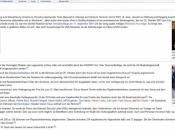"1984" by George Orwell Analysis
When two claims contradict one another, it is futile and useless in attempting to analogize between the two. George Orwell, the author of the novel 1984, defines doublethink as "the power of holding two contradictory beliefs in one's mind simultaneously, and accepting both of them." It is the idea of genuinely accepting two conflicting ideas, which eliminates an individual's capacity of being able to think or act freely. Dinh, the author of both the Patriot Act and the essay "How the USA Patriot Act Defends Democracy", uses a modern day form of double think in an attempt to justify the Patriot Act, an act which unconstitutionally violates the individual's right of privacy through the clandestine use of surveillance. Gelsey, the author of the essay "The FBI is Reading over Your Shoulder" illustrates the potential effect of the Library Records Provision of the Patriot Act, otherwise known as Section 215.
Section 215 allows the government to search and obtain the records of any individual without the individual's consent or knowledge. Gelsey claims that "intimidating readers in such a manner is, in effect, controlling what we read and how we think", thus it "circumvents the First Amendment by threatening readers rather than prohibiting what they read." Gelsey compares this statement to Winston Smith, the protagonist of the novel 1984, whose capacity of free thought and self expression is impaired and damaged due to constant monitoring and surveillance. The two conflicting claims of both Dinh and Gelsey bring in to point the issue of protecting individual rights versus the right of the state to access an individual's private information. Dinh claims that a balance of "ideals" and "techniques" is necessary and required for the rights of the individual to be protected. However, these "techniques" of surveillance and...



EXCELLENT
Finally someone understands that the United States is shifting into an Orwellian totalitarian state. The reference to the PATRIOT Act was excellent. Other such disastrous legislation includes: the John Warner Defence Authorization act, the loss of posse comitatus, the military commissions act etc.
Not many people draw upon the obvious parallels from 1984 to current-day America but you did a great job. This has to be the best essay I have ever read on here!
2 out of 2 people found this comment useful.